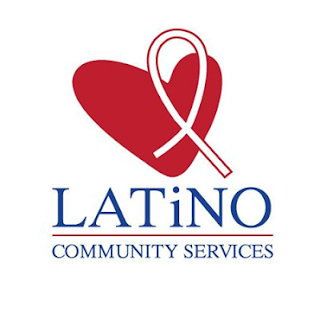By: Madeline Rodriguez, Executive Director, Latino Community Services
According to the Connecticut Department of Public Health HIV Surveillance Program, Latinos are disproportionally impacted by HIV-infection in the state. Nearly half of the Latinos living with HIV/AIDS in Connecticut are now over the age 50, but our Latinx generation is being hard hit by new diagnosis. (CDPH, 2020)
Latino Community Services, Inc. (LCS) was founded in 1986 as Latinos/as Contra SIDA in response to the need for culturally and linguistically competent services for Latinos in Hartford who were infected with and affected by HIV/AIDS. The mission of LCS is to reduce the further spread of HIV/AIDS among Latinos and other at-risk populations and improve the quality of life and health of people living with HIV/AIDS. The clients at Latino Community Services come from all walks of life and are diverse in age, race and gender. LCS is a devout ally of the LGBTQI community and staff is dedicated to providing the best possible services so that everyone feels safe and welcomed.
Many of the individuals we serve have plenty of common ground. From battling with depression and anxiety to living with HIV/AIDS, and/or Hepatitis C and other health issues. Our clients, who are mainly black and brown people, are consistently disproportionately burdened with poor outcomes across these health conditions which are now layered by COVID-19.
These individuals many times rely on human interaction such as our support groups; however since the pandemic, our support groups are now held virtually resulting in clients not engaging consistently . The HIV/AIDS virus compromises the body's immune system which allows for common colds to be magnified due to the weakening of the clients' defense system (immune system). Meaning, a person who lives with HIV/AIDS has a greater chance of contracting coronavirus, hence many of our clients resorting to complete isolation as a precautionary measure. In turn, this has brought to light the impact that mitigation strategies such as social distancing are having on their health, mental health, access to HIV treatment and basic needs.
As one strategy to bring some relief to the community, LCS has been delivering food to the individuals who have self-quarantined. The organization has experienced a significant influx of families and individuals utilizing the service particularly due to being unemployed with by lay off or the business being shut down permanently additionally, homelessness that was partially due to the pandemic. A survey was conducted which concluded that many of the individuals utilizing the food pantry identified as black and brown people with underlying health issuesm mainly HIV/AIDS. LCS' food pantry also provides other basic needs essentials which include but are not limited to toilet paper, shampoo & conditioner, body soap, laundry detergent and pet food.Since March of 2020, Latino Community Services have served 419 unduplicated families. Lastly, recent funding has afforded Latino Community Services with the resources to provide personal protective equipment.
About Latino Community Services: Founded in the City of Hartford, CT, in 1986, LCS provides culturally responsive care and prevention services to people living with HIV/AIDS and their communities. Beginning it's operations in the height of the HIV/AIDS epidemic, LCS is the only Latino led organization with it's experience providing direct services to marginalized PLWH and other underrepresented populations of color throughout Hartford, Middlesex and Tolland Counties. Latino Community Services recognizes the challenges posed by COVID-19 and the impact that the virus has had worldwide. Throughout these challenging times, they remain committed to their clients and the public as they continue to adapt and evolve throughout the outbreak and recovery phases. Donate to Latino Community Services.
References:
- Connecticut Department of Public Health HIV Surveillance Program. Rate of Newly Diagnosed HIV Cases by Race/ethnicity, Connecticut, 2014-2018. Retrieved online at https://portal.ct.gov/-/media/Departments-and-Agencies/DPH/AIDS--Chronic-Diseases/Surveillance/statewide/CT_rate_hiv_race.pdf.
- Connecticut Department of Public Health HIV Surveillance Program. Hispanic/Latino People Living with HIV Infection by Sex, Race, and Risk, Connecticut, 2018. Retrieved online at https://portal.ct.gov/-/media/Departments-and-Agencies/DPH/AIDS--Chronic-Diseases/Surveillance/statewide/CT_plwhivaids_table_cur_hispanic.pdf.
- Connecticut Department of Public Health HIV Surveillance Program. Rate of Newly Diagnosed HIV Cases by Age at Diagnosis, Connecticut, 2014-2018. Retrieved online at https://portal.ct.gov/-/media/Departments-and-Agencies/DPH/AIDS--Chronic-Diseases/Surveillance/statewide/CT_rate_hiv_age.pdf.
Disclaimer: Guest blogs do not necessarily reflect the views of the ADAP Advocacy Association, but rather they provide a neutral platform whereby the author serves to promote open, honest discussion about public health-related issues and updates.



No comments:
Post a Comment